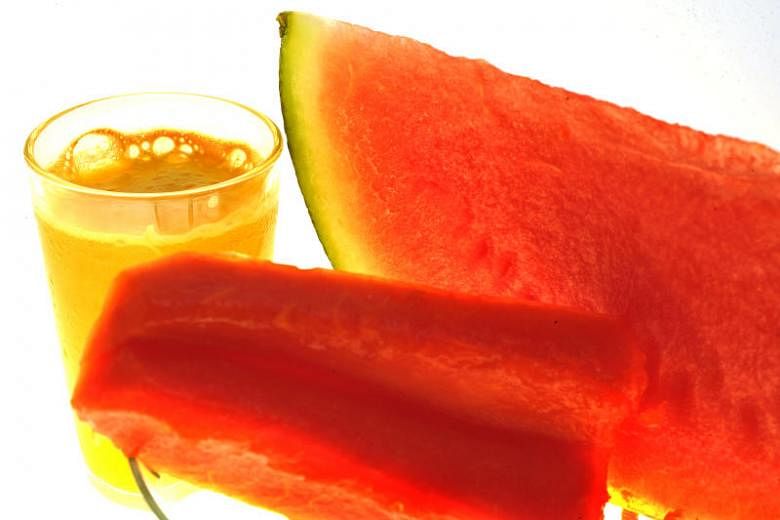NEW YORK (BLOOMBERG) - Fruit juice has been falling out of favour for its high sugar content and low nutritional value. Now parents have another reason to pull the plug: heavy metals.
According to a study released on Wednesday (Jan 30) by Consumer Reports, measurable levels of cadmium, inorganic arsenic, mercury or lead were found in every single one of the 45 juice products it tested from major brands sold across the US.
Almost half of the juices had metal levels so high they were deemed "concerning", with seven of the products posting heavy metal concentrations high enough to harm children who drink as little as 4 ounces - about half a cup - a day.
"The risks we assessed were all due to chronic exposure - persistent, daily intake over an extended period of time," James Dickerson, Consumer Reports' chief scientific officer, said in an interview.
Whether you're an adult or a child, "it's a good idea to try to reduce the amount of non-refrigerated, ready to drink juice."
To be fair, it would be impossible to remove all heavy metals from food and drinks, since some can occur naturally, Dickerson said.
Toxins can find their way into foods through water, air and soil, or they can be added unintentionally at manufacturing plants or in product packaging.
In some of the juices tested, the level of a single metal was not concerning, but combined, they could have an adverse effect on children's developing brain and nervous systems, the report said.
Organic juice, or juice marketed for children, is not necessarily safer: Neither group performed any better than other juices, Consumer Reports found. In general, grape juice and juice blends had the highest average heavy metal levels, the report said.
BRAND NAMES
Certain juices from Minute Maid, R.W. Knudsen, Gerber, Welch's, Mott's and Juicy Juice were listed as potentially risky at either a cup or half cup a day.
Some in-house juice brands from Trader Joe's, Walmart, CVS Health and Whole Foods Market were also found to be potentially harmful, although some of these same companies - including Whole Foods, Juicy Juice, Gerber, Minute Maid and Mott's - also had juices listed on the "better alternatives" list.
"All Welch's juice is safe and strictly complies with all food safety regulations for juice - in the United States and in other countries around the world," Jackie Lee, senior manager of brand engagement for Welch's, said in an e-mail.
"Naturally occurring elements such as lead and arsenic are present in the soil, air and water. Therefore, they are also found in very low, harmless levels in many fruits and vegetables. Ongoing third-party testing shows that heavy metals in our products are far below federal limits."
The other companies did not respond to requests for comment.
The Juice Products Association, a trade group representing the industry, said it has not received a copy of the study from Consumer Reports, making it impossible to respond to specific findings.
FDA LIMITS
"Juice producers make safety a priority 365-days-a-year, and believe the concerns cited by Consumer Reports' intermittent testing of selected products are unfounded."
"Consumers can be assured that juice is safe," the association said in an e-mailed statement. "Regardless of where the ingredients are sourced or where the juice is processed, all juice producers are required to manufacture products that comply with FDA regulations."
That's part of the problem, according to Consumer Reports: the US Food and Drug Administration (FDA) does not have a proposed limit for cadmium in juice and has not finalised the one it has proposed for inorganic arsenic in apple juice.
Consumer Reports also says the FDA's guideline for lead is too high. The FDA did not immediately reply to a request for comment.
In general, juice consumption has gone down in the US, but companies have had a hard time developing substitutes to juice that kids want to drink.
Juice has a lot of sugar, and almost none of the beneficial fibre that whole or frozen fruit contain.
"It's important for families to remember that the beverage kids need the most is water," said Dr Steven Abrams, the chair of the American Academy of Pediatrics Committee on Nutrition.

